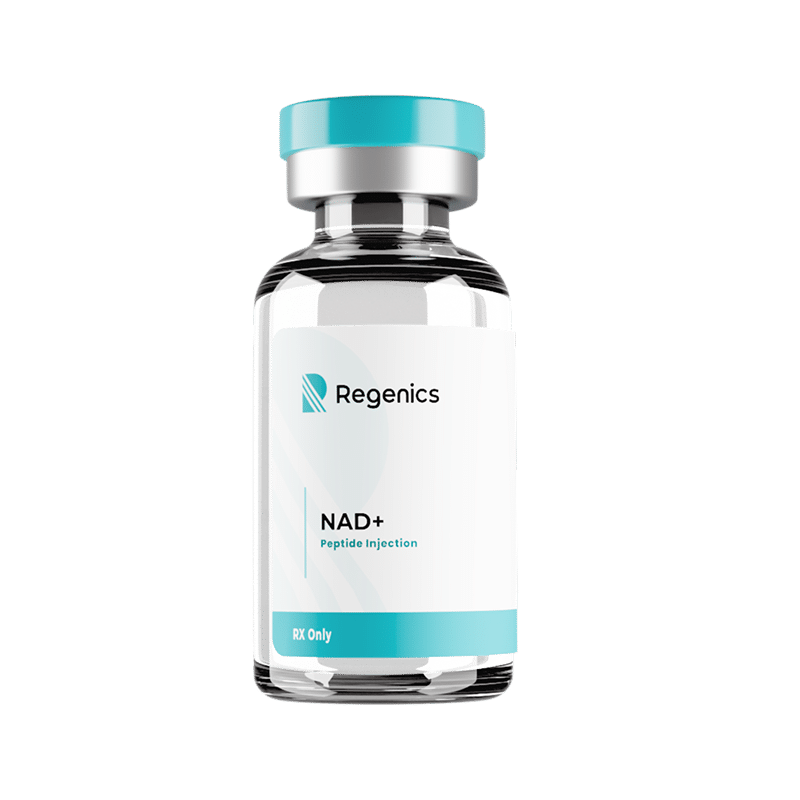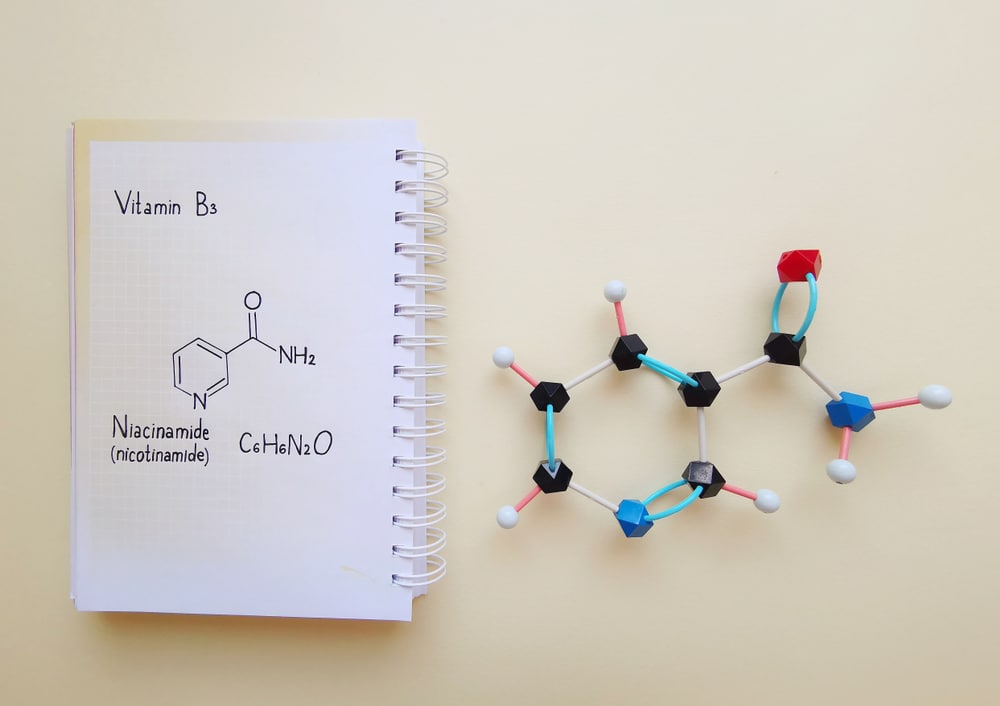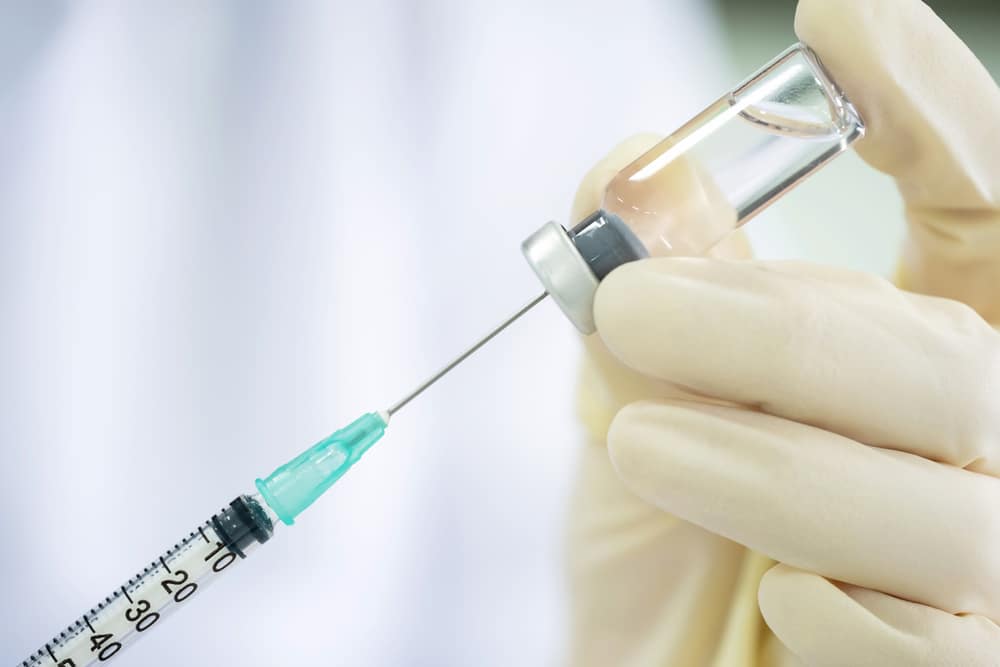
The Correct NAD+ Injection Dosage per Day
Health-conscious people have started to use NAD+ injections as a popular option in the search for better cellular health and slowed down the aging process.
Maximizing benefits and guaranteeing safety depend on knowing the appropriate daily NAD+ injection dosage per day. Whether you’re looking to boost energy levels, improve focus, or support overall wellness, knowing how much NAD+ to administer can make all the difference.
Let’s explore the essentials of NAD+, why dosing matters, and how to find the right protocol tailored to your needs.

What Is NAD+?
Nicotinamide Adenine Dinucleotide (NAD+) is a fundamental molecule found in every cell of your body, serving as a crucial coenzyme in various biological processes.
It’s a prevalent cellular electron transporter essential for cell function and viability, existing in multiple forms including its reduced state (NADH) and phosphorylated forms (NADP+ and NADPH). Your body uses NAD+ in several vital processes.
It’s required for every step of cellular respiration, from glycolysis in the cytoplasm to the Krebs cycle and electron transport chain in the mitochondria. Beyond energy production, NAD+ plays key roles in manufacturing cholesterol, creating nucleic acids, elongating fatty acids, and regenerating glutathione, an important antioxidant.
Your body naturally produces NAD+ from various sources, including the amino acid tryptophan and vitamin B3 (niacin) and its vitamin precursors nicotinic acid. However, NAD+ levels naturally decline with age. Two studies have shown that NAD+ levels in the human brain decline with age, with reductions ranging from approximately 10% to 25% between young adulthood and old age.
The decline in NAD+ levels is particularly significant because NAD+ is consumed during various cellular processes and other metabolic pathways and can become depleted over time. This depletion contributes to increased DNA damage, mitochondrial dysfunction, and can lead to severe metabolic dysfunction and age-related illnesses.
What Are the Potential Health Benefits of NAD+
NAD+ supplementation offers a remarkable range of potential health benefits. These benefits extend across several key areas of health and performance:
Cognitive Function and Brain Health
For cognitive function, NAD+ enhances mental clarity, memory, and focus by supporting neuronal health. The brain, being an energy-intensive organ, particularly benefits from NAD+’s role in cellular energy production and DNA repair. NAD+ may help in conditions like Alzheimer’s disease and ischemic brain injury by supporting brain health and potentially improving cognitive function.
Physical Performance and Energy Production
In terms of physical performance, NAD+ improves muscle function and recovery time while supporting energy metabolism during intense activities. This makes it particularly valuable for athletes and active individuals looking to optimize their training results.
Anti-Aging Benefits and Healthy Aging
One of NAD+’s most significant impacts is on the aging process. It helps repair DNA damage and regulates proteins that control aging, potentially slowing cellular aging and supporting longevity. This process is fundamental to maintaining optimal cellular health and function.
Weight Management and Metabolic Support
Cellular metabolism depends critically on NAD+, which also shapes how your body generates energy from food. Increasing NAD+ levels could increase your metabolic efficiency, thereby helping with weight loss and fat oxidation. Furthermore helping weight loss initiatives is the potential of NAD+ to increase energy generation, which helps people keep more active lives.
Additional Benefits
Beyond these primary benefits like anti-aging benefits, NAD+ supports overall wellness by:
- Enhancing immune system function
- Improving sleep quality
- Supporting metabolic health
- Aiding in addiction recovery
- Managing chronic fatigue
- Reducing inflammation
The wide-ranging benefits of NAD+ stems from its fundamental role in cellular function, making it a powerful tool for those seeking to optimize their health and performance while supporting healthy aging.
Why is Proper Dosing of NAD+ Important?
Proper use of NAD+ injection dosage per day is crucial because your natural levels decline significantly with age.
Your NAD+ levels usually drop to about half what they were in your childhood by age 50. Various cellular functions are impacted by the drop in NAD+ levels, thereby compromising cellular health, lowering DNA repair capacity, and perhaps lower energy generation.
The importance of appropriate dosing is further emphasized by NAD+’s role in activating sirtuins, proteins linked to longevity and cellular stress resistance. NAD+ also plays a vital role in DNA repair, helping to maintain genomic stability and prevent age-related degradation.
Your individual NAD+ requirements can vary based on factors such as age, overall health status, and specific wellness goals. This variability makes it essential to work with a qualified healthcare professional, like the experts at Regenics, to determine the optimal dosage for your unique weight management needs.
Our healthcare providers can help ensure you receive the most benefit from NAD+ supplementation while maintaining safety and effectiveness.
What is the Standard Recommended Dosage Range for NAD+?
The standard recommended dosage for NAD+ injections typically ranges from 500mg to 1,000mg per day, with most protocols starting at 500mg as a base dose.
However, the specific amount varies depending on the administration method and individual factors. For subcutaneous injections, you’ll typically start with 0.1ml (20mg) and gradually increase to 0.5ml (100mg), administered 1-3 times per week.
This gradual approach helps minimize potential side effects while allowing your body to adjust to the treatment. If you’re receiving NAD+ through IV therapy, the standard dose is 500mg per session, with the option to increase to 1,000mg based on your needs and tolerance. For those using nasal spray formulations, the typical dosage is 30mg per spray, administered once daily.
It’s crucial to note that these are general guidelines, and your optimal dosage may vary based on factors such as your age, health status, and treatment goals. Always start with a lower dose and gradually increase it under medical supervision to ensure safety while maximizing the benefits of NAD+ supplementation.

NAD+ Injection Administration Protocols
Starting your NAD+ injection protocol requires careful attention to dosage progression and proper administration techniques. We’ll guide you through the established protocols for optimal results and safety.
Initial Protocol and Dosage Progression
Your NAD+ journey should begin with a conservative approach. Start with a 0.1ml dose to assess your body’s response.
Once you’ve confirmed good tolerance, you can gradually increase to 0.25ml, administered up to three times per week. The target dose is 0.5ml, typically given 2-3 times weekly, though you should never exceed 0.5ml within any 24-hour period.
For intensive initial treatments, some protocols recommend 500-1,000 mg daily for four consecutive days, followed by a transition to twice-weekly injections for one month. After this initial phase, you’ll move to a maintenance dose schedule.
Administration Methods
You have two primary options for NAD+ administration:
Subcutaneous Injection (Under the skin):
Here are some guidelines for this NAD+ administration method:
- Choose either your stomach area or upper arm
- Rotate injection sites with each administration
- Clean the injection site with an alcohol wipe
- Ensure proper sterile technique
Intramuscular Injection:
These are a few guidelines for intramuscular injections:
- Requires deeper penetration into muscle tissue
- May offer different absorption rates
- Should only be performed if specifically prescribed
Maintenance Protocol
After your initial treatment phase, you’ll transition to a maintenance schedule. This typically involves:
- Regular doses of 0.25ml to 0.5ml
- Administration 2-3 times per week
- Possible reduction to one injection every two months for long-term maintenance
Storage Guidelines
Proper storage and handling are crucial for NAD+ effectiveness:
- Store reconstituted NAD+ in a refrigerator between 36°F to 46°F (2°C to 8°C)
- Use the standard 20% purity concentration for optimal safety and efficacy
- Always inspect the solution before use
- Never use if the solution appears cloudy or contains particles
- Maintain sterile technique during preparation and administration
Safety and Monitoring Guidelines
NAD+ injections are generally well-tolerated when administered properly, but understanding potential side effects and following proper monitoring protocols is crucial for safe treatment.
You may experience some common side effects, particularly if the injection is administered too quickly, including headaches and shortness of breath. Less common effects can include constipation and temporary changes in liver function markers.
To ensure your safety, we recommend:
- Starting with a lower dose (0.1ml) and gradually increasing based on your response
- Rotating injection sites to prevent irritation
- Maintaining consistent injection schedules
- Storing reconstituted NAD+ in refrigerated conditions between 36°F to 46°F
- Keeping dry powder at room temperature (68°F to 77°F)
You should seek immediate medical attention if you experience severe headaches, significant breathing difficulties, or unusual discomfort during or after injection. NAD+ injections haven’t been evaluated for safety in pregnant or breastfeeding women or children, and these groups should avoid treatment.
Regular monitoring of your response to treatment helps ensure optimal results while maintaining safety. Your healthcare provider will adjust your dosage based on your individual response and any side effects you may experience.
Factors Affecting Individual NAD+ Dosage Requirements
Determining your ideal NAD+ dosage is a personalized process influenced by several critical factors:
Age as a Key Factor
Age is the primary determinant of NAD+ levels. As you age, your body’s ability to synthesize NAD+ declines, and consumption by cellular processes increases. This natural decrease may be accelerated by other factors, making supplementation more critical over time.
Diet and Nutrition
Poor dietary habits, particularly those lacking in vitamin B3 (niacin) and its precursors, can significantly impact your NAD+ production. Essential nutrients found in foods like fish, poultry, and leafy greens are crucial for maintaining healthy NAD+ levels. Excessive alcohol consumption also plays a role, as it strains your liver’s ability to synthesize NAD+.
Sleep and Stress
Your sleep patterns and stress levels directly influence NAD+ metabolism. Chronic sleep deprivation and persistent stress can interfere with your body’s natural NAD+ regulation processes.
Inflammation and Health Conditions
Chronic inflammation increases NAD+ consumption as the body activates inflammatory response enzymes. Additionally, medical conditions like diabetes and neurodegenerative diseases can impair normal NAD+ metabolism, further depleting reserves. Managing these age-related illnesses is essential for maintaining NAD+ levels.
Environmental Exposures
Environmental factors, such as exposure to toxins and pollutants, can contribute to cellular damage and associated oxidative stress, further depleting your NAD+ reserves. Prolonged environmental stressors exacerbate the body’s NAD+ demands.
Body Composition and Weight Goals
Your body composition and weight will determine your NAD+ need. Since NAD+ supplementation boosts energy generation and metabolic function, those trying to lose weight could find benefit. Maintaining ideal NAD+ levels helps those on weight reduction paths maximize fat metabolism, encourage active recovery, and support the hormonal balance required for long-term effects.
Medical Conditions
Certain medical conditions can disrupt normal NAD+ metabolism. These medical conditions can include diabetes and neurodegenerative diseases
These factors don’t exist in isolation – they often interact and compound each other’s effects. For instance, poor sleep might lead to increased inflammation, which in turn accelerates NAD+ depletion. Understanding these interactions is crucial for determining your optimal NAD+ supplementation dosage and frequency.
How To Protect NAD+ Levels
Your NAD+ levels naturally decline with age, but various lifestyle factors can accelerate this decrease.
By implementing specific protective strategies, you can help maintain healthy NAD+ levels and support optimal cellular function. Managing stress is crucial for protecting NAD+ levels. Regular exercise, mindfulness meditation, and deep breathing exercises can help reduce chronic stress that depletes NAD+.
Additionally, prioritize getting 7-8 hours of quality sleep each night, as poor sleep patterns can interfere with NAD+ production. Your diet plays a vital role in maintaining NAD+ levels. Focus on consuming foods rich in NAD+ precursors, particularly vitamin B3 (niacin), such as:
- Fish and poultry
- Whole grains
- Leafy green vegetables
Regular physical activity, especially endurance exercise, can help boost NAD+ levels and enhance mitochondrial function. Combine aerobic exercises with strength training for optimal results, but ensure your workout routine matches your fitness level.
Moderate your alcohol consumption, as excessive intake can significantly impair NAD+ synthesis by straining your liver function. If you have underlying inflammatory conditions, work with your healthcare provider to manage them effectively, as chronic inflammation can trigger increased NAD+ consumption.
Take steps to minimize exposure to environmental toxins that can deplete NAD+ reserves:
- Use natural cleaning products
- Avoid heavily polluted areas
- Ensure proper ventilation in your home
- Filter your drinking water
By implementing these protective strategies, you can help maintain healthy NAD+ levels and support your body’s natural processes. Remember that consistency in these lifestyle changes is key to seeing long-term benefits.
Conclusion
NAD+ supplementation through injections offers promising benefits for mitochondrial health and aging management, but proper dosing is crucial for optimal results.
While research supports various protocols ranging from 500mg to 1000mg initially, the key to success lies in personalized dosing strategies that account for individual needs and responses. Given that NAD+ levels naturally decline by about 50% after age 50, professional guidance by qualified healthcare professionals becomes essential for safe and effective supplementation.
At Regenics, our experienced healthcare providers can develop a customized NAD+ injection protocol tailored to your specific health goals and circumstances. Contact us to learn how we can help optimize your NAD+ therapy journey with expert supervision and personalized care.